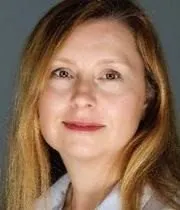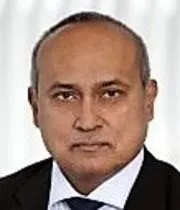Immuno-Oncology
e-Xchange
(a virtual meeting)
Immune Biomarkers
- Patient selection to guide more efficient clinical trial design
- Increase therapeutic window – enriching for responders and limiting safety signals
- Guiding selection of IO combination strategies
Vice President, Cell Biology & Immunology
Macrogenics
Paul has 25 years-experience in biotech, coordinating discovery and development of biologics. He began his career at HGS, directing genomic-based target discovery of various protein and mAb-based therapeutics including discovery of BLyS as a B-cell survival factor leading to development of Benlysta, an approved treatment for lupus. At MacroGenics, Paul leads research dedicated to the discovery, preclinical development and clinical translational biology of antibody-based therapeutics for cancer or autoimmune disease through harnessing of the host immune system. He obtained a PhD from University of Glasgow and performed post-doctoral work at the Roche Institute of Molecular Biology. Paul has co-authored over 70 peer-reviewed manuscripts and has 40 issued US patents.

- Importance of stratification by immune response for therapeutics and treatment?
- How do cancer cells avoid the immune attack?
- Can early detection of low level immune biomarkers be an early indicator of cancer?
- How do you best screen and study the immune response?
Stefan Jellbauer, Product Manager
Thermo Fisher Scientific
Stefan Jellbauer is the Product Manager for QuantiGene gene expression assays. After 10 years in academic research, he joined Affymetrix/eBioscience in 2015, where he worked in the roles of Field Application Scientist and Technical Specialist with Affymetrix and Thermo Fisher Scientific before transitioning to Business Development in personalized cancer research and therapeutics with Farcast Biosciences as Technical Scientific Liaison. He now works in Global Product Management.
Stefan received his Ph.D. in Biology from Ludwig-Maximilians University in Munich (Germany), focusing on tumor vaccination. He completed his post-doctoral work at the University of California, Irvine studying mucosal immunology and host-pathogen interactions.

1:00pm – 1:30pm
Recent breakthroughs in checkpoint inhibition, CAR T cell therapy, and cancer vaccines illuminate the full capabilities of the immune system and how it may be harnessed to combat cancer. Identifying and validating predictive biomarkers for checkpoint immunotherapy is important to optimize therapeutic benefit, minimize toxicity risk, and guide combination therapy approaches.
Thermo Fisher Scientific offers many research platforms and products to help better understand the interplay between the immune system and cancer.
ELISAs, Invitrogen high-sensitivity ProQuantum and multiplex ProcartaPlex immunoassays are routinely used for quantitative assessment of soluble proteins such as cytokines, chemokines, growth factors, and other biomarkers.
In addition to protein profiling, molecular profiling of tumors and their microenvironment can lead to the identification of gene signatures and/or markers that can help predict response or elucidating the mechanisms of resistance to therapy. Invitrogen bead-based Quantigene Plex assay use Luminex xMAP and branched DNA technology for-high-throughput gene expression profiling. to analyze gene signatures, RNA biomarkers in multiple pathways, and cell type-specific markers.
This presentation will focus on “finding the appropriate answer (immunoassay) to a particular question (biomarker discovery in areas of Immuno-Oncology)”.
- Cancer is heterogeneous and adaptable and its interaction with a dynamic human immune system is not predictably modeled in animals or in isolated cells. What technologies or models are available or emerging for non-clinical experiments that add value for hypothesis generation and PK/PD modeling?
- The dynamic nature of the immune system poses challenges in clinical trial design. What concepts, experimental approaches or protocol elements have you found useful in the design of your trials for answering key translational questions, such as what is the optimal dose and schedule for my novel agent?
- What do you see as the key operational, technical and biologic challenges to success of current and emerging immuno-oncology drugs?
Vice President, Translational Biology
Cue Biopharma
Mary Simcox, Ph.D. has over 20 years of experience in oncology drug discovery and development. At Hoffmann La Roche, she led small molecule drug and antibody discovery and preclinical development teams and the Global Oncology Target Selection Team. Mary was the Roche Head of Cancer Cell Signaling and the lead scientist on several development teams, including the Roche biomarker lead for Avastin. After the Roche NJ site closure, Mary moved to Boston, where she has held roles at 3 biotechnology companies. For the past 3 years, Mary has been the VP of Translational Medicine at Cue Biopharma, where she has led the CUE-101 program from research to IND filing to phase I development.

4:50pm – 5:20pm
Closing Keynote & Address: TBC
Translational Research
- Should we be required to use animal models to explore new IO agents or new combination agents?
- Is there a “best” animal model for pre-clinical IO exploration of, specifically, mechanism of action?
- How can we leverage newer technology (for example, micro-organoids) in the IO space? How can they be used?
- Do we need to invent a “new” technology for a “best model?”
- How does in silico modelling help inform our IO clinical experiments?
Vice President, Clinical Development
Inovio Pharmaceuticals
Jeffrey Skolnik directs several of Inovio’s clinical-stage cancer immunotherapy programs, overseeing DNA immunotherapies aimed to treat cancers. He was previously at Tetralogic Pharmaceuticals, as Vice President of Clinical Research and later Chief Medical Officer, overseeing all clinical programs in oncology, infectious diseases and dermatology. He was also a Medical Affairs lead in oncology at GSK and held several positions at AstraZeneca including Medical Science Director for early and late stage compounds. Jeffrey received his pediatric training at Children’s Hospital, Boston and completed his hematology/oncology training at the Children’s Hospital of Philadelphia, where he is as Adjunct Assistant Professor of Pediatrics.

- Current approaches/platforms for biomarker screening, identification and validation moving from translational research into clinical validation
- What are the major barriers to moving biomarker research initiatives into a clinical application (eg. technology limit, biological relevance, validation)?
- Among available platforms, what are the strengths and weaknesses of current technologies in deploying strategies to develop biomarkers to ultimately aid in more intelligently advancing clinical trials?
President & CEO
Ultivue
Jacques is a seasoned commercial and operations leader with more than 20 years of experience in delivering next-generation technologies to support biopharma and academic medical centers in their fights against disease.
Jacques was most recently the Vice President and General Manager of Definiens, a digital pathology and artificial intelligence service provider. Prior to Definiens, he was the Vice President of Sales at NanoString Technologies where he led the go-to-market strategy of the nCounter System. Jacques also held commercial roles at LI-COR Biosciences and Roche Diagnostics.

1:35am – 2:35am
- Choice of vitro vs animal models depending on the molecule under consideration
- Pros and cons of utilizing in vitro vs animal models to improve POS in clinic
- How to apply vitro vs animal models data in decision making
Vice President, Head, In Vivo Pharm & Translational Sciences
Elstar Therapeutics
Sangeetha Palakurthi has a mission to generate antibody-based, multi-functional therapeutics, of relevance in Cancer Immunotherapy. She has extensive oncology drug discovery and non- clinical development experience both within pharmaceutical and academic settings. Most recently, she served as the head of the Cancer Biology and Pharmacology team at the Belfer Center for Applied Cancer Science at the Dana-Farber Cancer Institute. Her responsibilities there included design and execution of a portfolio of industry and academic investigator sponsored translational pharmacology projects of targeted agents and immunotherapies to enable better clinical trial design decisions. Prior to that, Sangeetha led and supported oncology drug discovery programs from target identification to candidate drug nomination at AstraZeneca. Her research included design of strategies and execution of rationale-driven “proof of concept” studies to guide translation of right drugs to the right patients. Sangeetha received her Ph.D. in Biochemistry from the Osmania University in India and worked as a Scientist at Dr. Reddy’s Laboratories prior to her postdoctoral fellowship at Harvard Medical School.

Immunogenicity
- What are the acceptable ADA/Nab levels in IO?
- Current methods in the early-stage characterization of early stage candidates
- Benchmarking candidates to approved therapies
Customer Solutions Manager
ImmunXperts (a Nexelis company)
Amin holds a Bachelor of Science degree in Biology from McGill University, a Graduate Diploma in Biotechnology & Genomics, and a Master of Science degree in Cell & Molecular Biology both from Concordia University.
Early in his career, Amin worked on the cell cycle genetics of the fungal pathogen Candida albicans, characterizing the role a protein plays in modulating response to the environment. His passion for entrepreneurship led him to a business development role in the personalized medicine field before joining the contract research industry to help bring safe and effective medical innovations to patients.

1:00pm – 1:30pm
New immuno-oncology mAbs or agents with other structures have revolutionized treatment options for several malignancies in the past few years, and more are currently being evaluated in the clinic. The development of new therapeutics comes with a series of challenges and questions, of which one is the risk for unwanted immunogenicity which can lead to decreased efficacy and safety concerns.
Today, both in silico and in vitro preclinical tools are available to identify early on therapeutic candidates with a high immunogenicity risk potential. Additionally, certain tools can be used to mitigate the immunogenicity potential, and thus improve and accelerate therapeutic drug development and reduce the number of clinical failures.
Often used as a first step is an in silico T cell epitope prediction algorithm such as NetMHCIIpan which can be used to assess and compare the immunogenic potential of the lead candidates and guide de-immunization strategies.
Further monitoring of the immunogenic risk can be performed using different in vitro assays: a peptide screen assay, to enable the exclusion of immunogenic peptides and the inclusion of low risk sequences; a dendritic cell activation assay to assess immunogenicity signals for the whole product; the MAPPs, MHC Associated Peptide Proteomics, assay to follow uptake, processing and presenting of biotherapeutics by dendritic cells and identify specific regions of concern, and; in vitro T cell proliferation and activation assays to determine and rank the immunogenic risk of the test proteins.
The compilation of the different datasets and translation of the results into a comprehensive risk management plan, allows selection of the best candidates to move forward into humans, deimmunization of test candidates and identification and discontinuation of the high-risk candidates as early as possible.
- Could off-the-shelf vaccines targeting highly prevalent tumor-associated-antigens (TAAs) generate equally robust immune responses than personalized vaccines?
- What would be the best technology to deliver the select antigens?
- Is there a correlation between eliciting selective adaptive immune responses and clinical responses?
- What will be the role of innate immunity and tumor microenvironment in these efforts?
Executive Vice President & Chief Medical Officer
Advaxis

- CD3 T cell redirectors have shown efficacy in both heme and solid tumors
- CRS has delayed the progression of CD3 redirectors in the clinic and limited TI
- What are alternative strategies beyond CD3 that can redirect through different T cell binding targets and/or diverse T cell subtypes?
Vice President, Oncology Innovation
Janssen Pharmaceuticals
Marco Gottardis has 25 years of experience as a cancer research investigator in both biotech/large pharma and over 29 years of experience overall in translational cancer researc
h. He is currently VP of Oncology and Innovation Leader at Janssen Pharmaceuticals and is exploring new uses of Machine Learning and AI platforms for use in drug discovery and competitive technology landscape analyses. In earlier roles at Janssen, Marco was Prostate DAS Leader and under his leadership, developed a significant R&D portfolio for Janssen.
Prior to Janssen, he was Executive Director of Oncology and Immuno-Oncology Research and co-leader of the Oncology Discovery Group at BMS and Senior Investigator at LIGAND Pharmaceuticals
Marco obtained his BS from Columbia College, Columbia University, his Ph.D. at the Wisconsin Clinical Cancer Center, University of Wisconsin. He completed his post-doctoral fellowship at Vincent T Lombardi Cancer Center Georgetown University. Marco has co-authored over 100 publications and is co-inventor on multiple patents. He is externally recognized as an industry and scientific leader in prostate cancer research and oncology.

4:50pm – 5:20pm
Targeted Therapies
- Why antibodies targeting PD-1/ PD-L1 have led to unprecedented successes?
- Which are the approved indications in solid tumors and lymphoma?
- What is the prognosis of patients with “immune indifferent” tumors?
- What are the emerging immunotherapies targeting the innate immune system?
- Is “Don’t Eat Me Signal” blockade clinically active? In what indications?
Vice President, Oncology Clinical Development
TG Therapeutics
Alejandro Ricart M.D. is Vice President, Clinical Development at TG Therapeutics. Prior to this role, Alex was Executive Medical Director at Oncology Early Development Strategy & Innovation at Novartis Pharmaceuticals Corporation. Alex was also Senior Director Late Development for Merck Oncology. He played a key role in Pembrolizumab Breakthrough Therapy Designation and in the sBLA for Hodgkin lymphoma. Alex was also a Director of Biotechnology and Oncology at Pfizer in San Diego, California. He participated in the clinical development of several investigational compounds, including Axitinib and Bosutinib. He has published more than 80 journal articles, abstracts, reviews, and book chapters.

- Cytokines are potent immunostimulators whose therapeutic utility has been limited by PK and toxicity issues
- How do we improve cytokine PK?
- How important is attenuated potency versus increased receptor selectivity?
- Will novel methods for targeted cytokine delivery yield an optimal therapeutic index?
- Can different cytokines be combined safely for superior anti-cancer efficacy?
Vice President, Immunology
Repertoire Immune Medicines
Karsten Sauer is a Vice President at Repertoire Immune Medicines, Cambridge, MA, where he develops innovative immunomodulator-armed T cell therapies for cancer. He received his Ph.D. in biochemistry from the University of Tübingen. After postdoctoral work at the Merck Research Laboratories, he led a research group at the Genomics Institute of the Novartis Research Foundation in La Jolla, CA. For 9 years, he was faculty at The Scripps Research Institute, where he now is adjunct faculty. In 2015, he joined Pfizer to build a small-molecule cancer immunopharmacology group whose first asset recently entered the clinic. In 2018, he joined Repertoire.

3:45pm – 4:45pm
- What are the most important suppressive pathways that need to be therapeutically addressed for any T cell therapy to be effective? PD1/PDL1? TGFb? Other?
- What is the best modality with which to address the critical immunosuppressive pathways? Armed CAR T cells? Biologics? Small molecules? Other?
- Are there key cell types that should be therapeutically targeted to eliminate immunosuppression of T cells in the tumor?
- Are there cancer indication specific considerations that need to be considered for each of the questions above? (ie one size does not fit all?)
Vice President, Immunology R&D
SQZbiotech
Katherine Seidl is currently the VP of Immunology, Research and Development, at SQZ Biotech, Watertown, MA. She earned a Ph.D. in Genetics from Stanford University and completed her postdoctoral training at Harvard Medical School. A 15+ year career in drug discovery and development followed including Director of Immunotherapy at bluebird bio, Cambridge, MA. Prior, Katherine worked at Novartis Institute of Biomedical Research in Basel, Switzerland and Cambridge, MA , USA as a Group Leader in the departments of Oncology and Autoimmune, Transplantation and Inflammation. Previous experience in pre-clinical and translational research include Daiamed, Wyeth, and Pfizer.

4:50pm – 5:20pm
Combination Therapies
- Detecting synergistic efficacy and/or safety
- Basket trials to screen for tumor signals
- Pharmacodynamic considerations
Chief Medical Officer
Constellation Pharmaceuticals
Jeffrey Humphrey became Constellation Pharmaceuticals’ chief medical officer in June 2020. Jeffrey is a medical oncologist with over twenty years’ experience in drug development. Prior to joining Constellation, he was Chief Development Officer at Kyowa Kirin Co., where he oversaw development of the company’s global portfolio of experimental therapeutics for Western markets. In this role, he built U.S. and E.U. research capabilities and guided development of burosumab, mogamulizumab, and istradefylline to approvals and U.S./E.U. launches (Poteligeo®, Nourianz®, Crysvita®). Jeffrey began industry clinical research at Bristol-Myers Squibb and subsequently served in management positions for early and late drug development and medical affairs at Pfizer, Bayer, and Bristol-Myers Squibb. He participated in development of novel oncology drugs in all phases, from pre-IND to post-launch (Nexavar®, Erbitux®, Sprycel®, Yervoy®). He is a graduate of Harvard College and Case Western Reserve School of Medicine. He completed a medical residency at the Johns Hopkins Hospital and post-doctoral fellowships in human genetics and medical oncology at the U.S. National Institutes of Health and the National Cancer Institute, where he was board-certified in oncology.

- Strategies to optimize efficacy
- Strategies to minimize safety concerns
- Strategies to maximize benefit/risk
Executive Vice President & Chief Medical Officer BeyondSpring Pharmaceuticals
Ramon Mohanlal has more than 20 years of global experience in strategic drug development at big pharma, and biotech start-ups, including GlaxoWellcome (GSK), Pharmacia (Pfizer), Vertex, Interleukin Genetics, Syntium, Novartis, and AstraZeneca. His expertise includes drug development in all Phases (preclinical and 1, 2, 3, 4 clinical, post-marketing), regulatory filings and maintaining drugs on the market. Ramon played a crucial role in bringing five drugs to market and was deeply involved in the development of 15 marketed drugs. He also developed immuno-oncology development programs based on checkpoint inhibitor combination therapy at AstraZeneca. Ramon earned his M.D. and Ph.D. in Experimental CV Pharmacology, both from the University of Leiden, The Netherlands, as well as his M.B.A. from the American Intercontinental University in Illinois, with post-graduate business training at the MIT Sloan School of Management.

3:45pm – 4:45pm
- What is working now, where have we had success?
- What are the future combinations?
- How will these approaches differ?
President & Chief Executive Officer
Boston Immune Technologies & Therapeutics
Russell is the cofounder of Boston Immune Technologies and Therapeutics, Inc. (BITT) and has lead all aspects of growth including platform development and rounds of financing. Prior to BITT was President of Corinth Group and has been a senior advisor to biotechnology and pharmaceutical companies for over 20 years. He has played a predominant roll in the development of several early stage companies, and has advised numerous pharmaceutical companies regarding commercialization strategies.

4:50pm – 5:20pm
